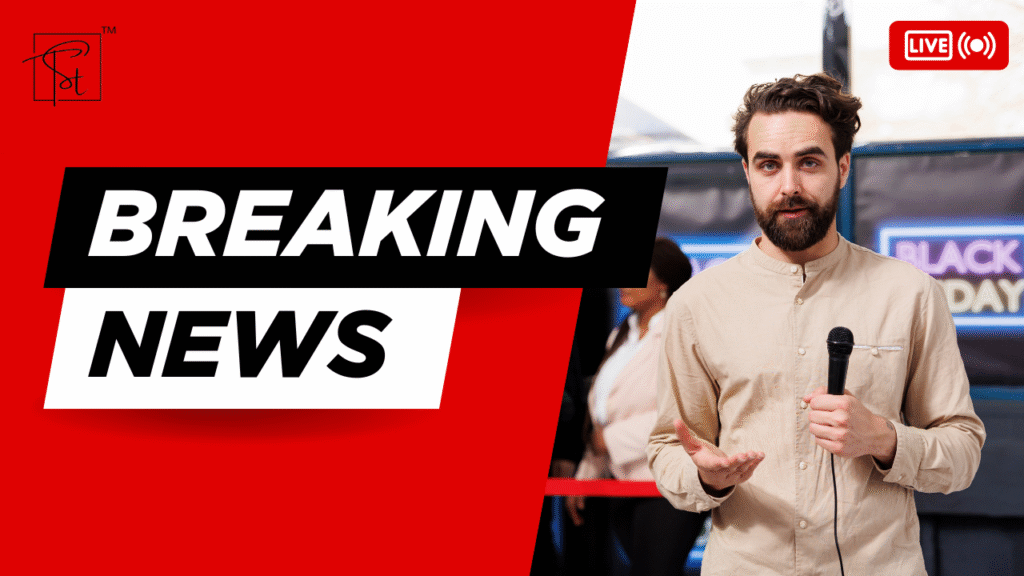SCOTUS Trump Immunity Ruling Shakes 2024 Election Landscape: What It Means for America
One Supreme Decision Could Change the Course of the 2024 Election
In a week already buzzing with political heat, social media storms, and news headlines spinning out of control, one announcement from the U.S. Supreme Court has stolen the spotlight: **SCOTUS has ruled on whether former President Donald Trump has immunity from prosecution for actions taken while in office**.
Sounds complicated? Don’t worry — we’re going to break it all down in plain English so you can truly understand what just happened, why it matters, and how it could shape the 2024 presidential election.
If you’ve been scrolling through Twitter (X), TikTok, or turning on your favorite news station lately, chances are you’ve come across this headline. But what’s the real story behind all the noise?
Let’s dive into the Supreme Court’s ruling on Trump’s presidential immunity — and why some are calling it a legal earthquake just months before Americans hit the polls again.
What Did the SCOTUS Ruling Actually Say?
This Monday, the highest court in the land finally weighed in on a question that’s been bouncing around legal circles for years yet became center stage thanks to ongoing investigations into Trump’s post-election behavior:
Can a former U.S. president be criminally prosecuted for acts committed while in office?
After months of speculation, the Supreme Court delivered its decision:
- A president enjoys “presumptive immunity” for official acts performed while in office.
- This immunity does not apply to acts deemed “unofficial” — such as personal or campaign-related behavior.
So, what does that even mean?
Let’s break it down.
Official vs. Unofficial: Why the Difference Matters
One of the most eye-opening parts of this decision is the differentiation between what the court considers “official” presidential actions and what’s outside those bounds.
Think about it like this: imagine you’re a CEO of a major company. You’re protected — to some extent — when doing your job according to your role. But if you step outside that job and do something unlawful for personal reasons, you’re on your own.
**That’s essentially how SCOTUS framed presidential immunity.** According to the ruling, Trump (or any future president) can’t be held criminally liable for actions tied directly to official duties. But if those actions weren’t part of his job as president — that’s fair game for prosecution.
So, was trying to overturn the 2020 election considered an “official act”?
That’s still being debated — and will likely now be considered case by case.
How This Affects Trump’s Legal Battles
Here’s where it gets spicy. Donald Trump is currently facing multiple indictments — including federal charges related to his alleged efforts to override the 2020 election results.
With this SCOTUS ruling in hand, Trump’s legal team now has major firepower to say: “Not so fast.”
They’re likely to argue that many of the actions that led to his indictment were, in fact, official presidential duties.
If these motions succeed, large portions of the cases against Trump could be thrown out — or at the very least, delayed. With the clock ticking on the 2024 election, that delay could be a game changer.
Will This Delay the Trials?
That’s the million-dollar question.
Legal experts believe defense attorneys will now file detailed motions in light of the ruling, arguing which acts should be considered “official.” And that’s not a quick process.
The likely result?
More delays. And if a final decision isn’t reached before the November polls, voters could be heading to the voting booth without seeing any convictions — or absolutions — involving Trump’s major cases.
The Political Aftershock: How This Shapes 2024
Let’s zoom out.
This decision doesn’t just affect Trump personally—it has massive implications for the entire 2024 election. Here’s why:
- Trump is currently the front-runner in the GOP primary.
- This legal ruling frees him from some immediate threats of conviction before election day.
- Prosecutors face a slower, more complicated path forward.
Whether you love him or loathe him, one thing is clear: this ruling potentially clears part of the legal fog that’s surrounded Trump, possibly energizing his supporters and frustrating critics hoping for swift justice.
What Do Trump’s Supporters Say?
Naturally, Trump wasted no time celebrating this ruling. Within minutes of the decision going public, he posted on Truth Social, calling it a “BIG WIN for Democracy.”
His legal team dubbed it a “vindication,” and conservative commentators argued it upheld the necessary independence of the presidency.
To them, this ruling proves what Trump has been saying all along: **that the government has no right to criminalize presidential decisions made in office.**
What About His Critics?
On the flip side, critics — including many legal scholars and Democratic leaders — are worried.
They fear this ruling opens the door for future presidents to abuse their power without fear of consequences. If the courts offer too much protection for “official acts”, they argue, what’s to stop a president from doing something unethical — or even illegal — and simply labeling it “official business”?
That’s a chilling thought.
History tells us that executive power must be held in check. This ruling, they fear, might make that job a lot harder.
Here’s Why Everyone’s Talking About This on TikTok and Twitter
You probably noticed #SCOTUS, #TrumpImmunity, or even the hashtag #EndOfDemocracy trending. So why is this legal decision trending like a Beyoncé album drop?
Because this isn’t just courtroom drama — it’s historical.
For the first time ever, the Supreme Court laid out a concrete framework answering a question our founders never fully anticipated: Can a former president be treated like any other citizen when it comes to the law?
And with Trump looking likely to face off against Joe Biden this fall, it puts American voters in an unprecedented position:
- Could they re-elect someone actively fighting federal prosecution?
- Could court cases decide the election? Or vice versa?
- Will this set a precedent for how we judge presidential accountability in the future?
Young voters especially are taking to platforms like Instagram and TikTok to discuss what this means for democracy. Many are confused, others are outraged, but one thing’s for sure: this ruling is reawakening political conversations across generations.
The Bigger Picture: What This Means for Presidential Power
This isn’t just about Trump. This ruling is about every future president too.
Here’s what’s at stake:
- Defining presidential accountability moving forward
- Setting legal boundaries for executive actions
- Clarifying how “official duties” are interpreted by courts
Let’s use an analogy.
Imagine you’re playing a game where only some rules are clear — and others are made up as you go. That’s kind of how presidential immunity works. With this SCOTUS ruling, the court just added a few solid lines to the field, but plenty of grey space still exists.
How those lines get used — or exploited — is the big question moving forward.
How Should Voters Respond?
As voters, we’re left with a few big takeaways:
First: Legal rulings, no matter how well-intentioned or logical, can have lasting political effects. This one could shape the very structure of the next presidency.
Second: Engaging in political discussions — even if they’re complicated or sticky — helps keep democracy thriving. You don’t need a law degree to care about presidential accountability.
Third: No matter where you land politically, this is a moment to ask yourself: What kind of leadership do I want in the White House?
Because let’s face it — politics isn’t just about parties anymore. It’s about values, laws, and choosing between different visions for America’s future.
Final Thoughts: Where Do We Go From Here?
The Supreme Court’s Trump immunity decision isn’t just a news flash — it could be a pivotal moment in American history. As the 2024 election draws nearer, we may look back on this ruling as the turning point that shifted the national narrative.
Will it help Trump return to the Oval Office? Will it inspire new laws clarifying presidential responsibilities? Will it divide the nation further — or finally unite it in reform?
Only time will tell.
But one thing is clear: you don’t need to be a political junkie to care about this stuff. Because it affects every single American — now and for generations to come.
So talk about it. Ask questions. Do your own research. And most importantly: when November comes, make sure your voice is heard at the ballot box.
Stay Informed and Share What You’ve Learned
Let’s help each other cut through the noise. If this article helped you understand today’s trending headline a little better, consider sharing it with your friends or on your social platforms. The more people who understand what’s at stake, the stronger our democracy becomes.
And if you’ve made it this far — thank you. Seriously. In an age of clickbait and soundbites, taking time to really understand complex issues is rare. But it matters.
Stay curious, stay informed, and don’t be afraid to ask the hard questions.
Trending Now:
- “SCOTUS Ruling Rocks 2024” tops TikTok trends
- Trump’s Truth Social post goes viral after decision
- Legal experts debate future of presidential accountability on CNN, NPR, and Fox
Until next time, keep watching this space. The 2024 election is only just heating up — and we’ll be right here with you for every twist and turn.
#TrumpImmunity #SCOTUS2024 #PresidentialPower #Election2024 #PoliticsExplained


